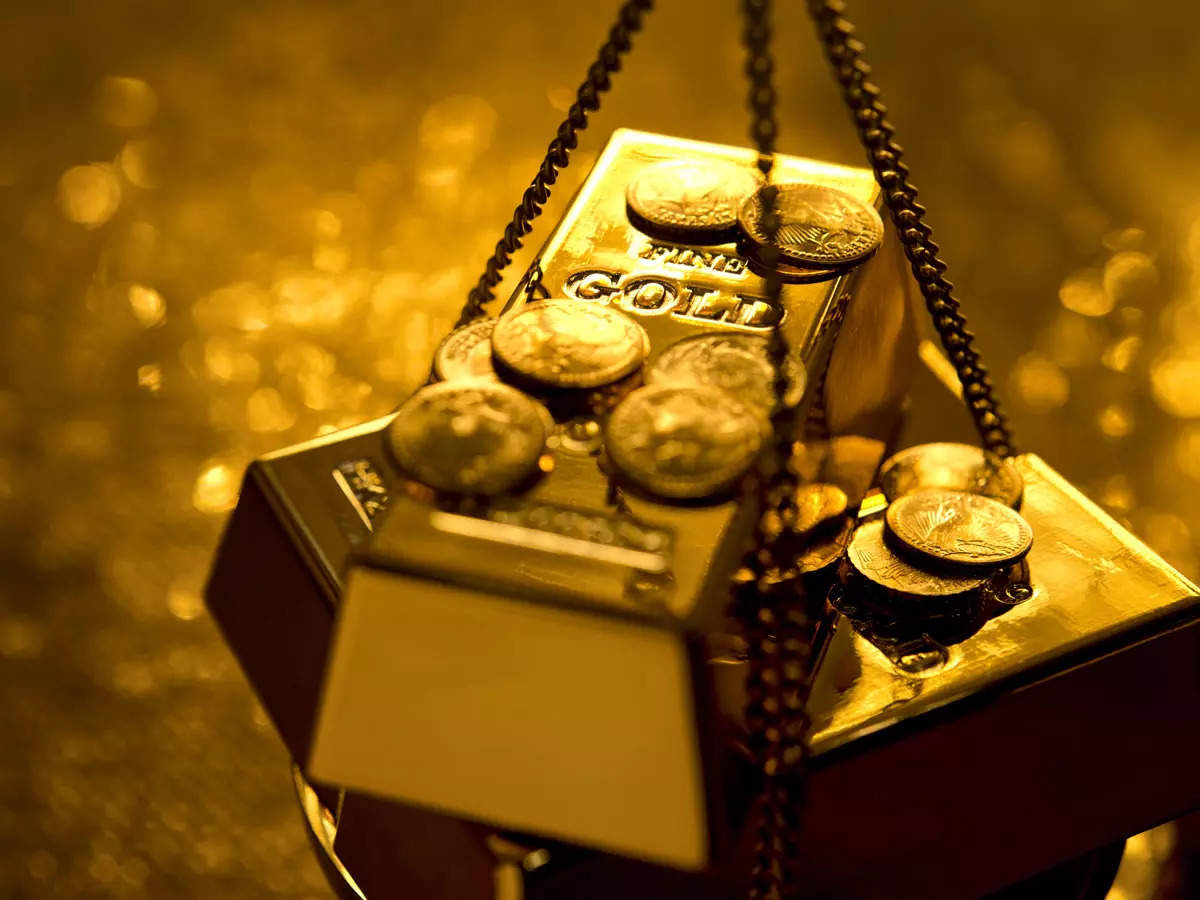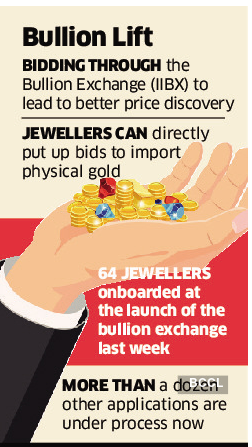
India is set to save billions of dollars in foreign currency over the years as the world’s biggest buyer of gold routes sizable annual imports through a dedicated bullion exchange Prime Minister Narendra Modi believes could help transform the country into the metal’s rightful market maker from a passive price taker.
Costs could come down by as much as $50 a kilogram initially, people familiar with the matter told ET, as the Bullion Exchange (IIBX) at GIFT City becomes the favoured platform for gold consignments in a country where the yellow metal has beaten all competing asset classes as the traditional store of value.
For every 100 tonnes worth of gold imports through the exchange, jewellers could save up to $5 million in forex by using the exchange platform instead of buying the metal from banks.
Of course, with the exchange becoming the primary conduit, banks could lose primacy in this business, dealers said.
If a jeweller places the order with a bank, it cannot reverse it without any penalty. However, on an exchange platform unless their bids match with the seller’s, there is no such compulsion. This leads to better price discovery.
“The bullion exchange is the first such transparent platform where jewellers can directly put up bids to import physical gold, leading to better price discovery,” said Ashok Gautam, CEO at International Bullion Exchanges IFSC. “We expect a surge in participation both from buyers and international sellers.”
Initially, 64 jewellers were onboarded at the launch of the bullion exchange the Prime Minister dedicated to the nation last week. More than a dozen other applications are under process now, and the exchange received over two dozen enquiries from jewellers in the last few days, market sources said.
IIBX has three vaults at GIFT City where 446 tonnes of gold and 2,580 tonnes of silver can be stored.
It is sourcing physical gold from top global bullion banks. JP Morgan, Citi, Standard Chartered and ICBC are among likely institutions that either supplied physical gold or are in talks to do so.
Individual banks could not be contacted immediately.
“We will be importing gold through IIBX to meet our requirements,” said Ahammed MP, chairman, Malabar Gold & Diamonds. “Gold prices are currently distorted since nominated agencies designated to import gold charge different margins. The exchange will bring order and transparency in the price-setting mechanism of gold.”
Directly importing gold through the spot exchange will be advantageous for big jewellers like Malabar Gold.
India had imported 837 tonnes of gold in FY22. This translates into $41 million savings considering an expected cost savings from exchange trading ($50/kg). This, however, assumes that the entire quantity of gold is imported in the country through IIBX. Besides gold bars, people import dorays too.
Initially, IIBX is expected to grab a 40% share of imports of the metal into the country.
“The spot exchange opens another route to import gold by trade,” said Bhargav Vaidya, leading gold trade analyst. “Demand has to go up for higher gold imports.”
Importing gold through the exchange also ensures purity and standardization since the exchange will work as a benchmark-setting platform for the quality of the bullion imported.